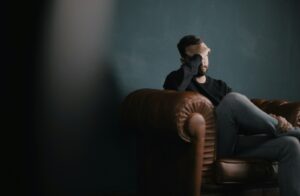The average age of a child viewing porn is just 11, with 93% of boys and 63% of girls seeing explicit content before the age of 18.

Many parents, myself included, can be very much in denial about our children being exposed to, or accessing porn, but this ignorance can be dangerous and to their detriment. As Muslim parents in the west, our role has ever diversified and developed to meet and overcome the challenges we and our children may face. And one of these facets of our responsibilities has got to be guidance around and protection from harmful self-destructive behaviours and addictions. Porn is a difficult topic and we don’t feel equipped to tackle it. It is unlikely our parents or an elder had spoken to us about this as children or young people so we won’t have a template to recall.
But the statistics around make for grim reading. The average age of a child viewing porn is just 11, with 93% of boys and 63% of girls seeing explicit content before the age of 18. Very young children are being exposed to indecent images through adverts, inappropriate cartoons or websites.
Young people grow up with the message that pornography is harmless and acceptable. It is common place during the teen years that friends may talk about it and promote it to one another.
A recent report even revealed that many Muslim children and teens were falling into the trap of accessing porn repeatedly not knowing it was Islamically forbidden, as they had not explicitly been told that it is.
It is therefore absolutely vital that we, as parents open the lines of communication around difficult topics, like pornography. It is awkward and difficult but they need our perspective, our objectivity and insights.
Age appropriate discussions will allow our children to feel less shame when exposed to indecent images accidentally and encourage them to come to us and seek our help both with parental control measures but also emotionally as they can be impacted and upset by the content.
A non-judgemental, objective approach also allows our children the space and safety to admit if they feel they have developed an addiction of any kind, even pornography, so we are able to help them seek help for this and change the trajectory towards a purer attitude to sex in their future marital relationship.
The dangers of porn:
- Porn is likely to impact how a boy or girl views their future spouse. It sets a dynamic around sex which is often controlling, degrading to women and objectifying of them.
- Porn will subconsciously influence the expectations of both males and females from sex as being physical and carnal disregarding emotional connection and safety in a relationship.
- Porn will leave both boys and girls aspiring to and possibly obsessing about physical beauty which may not be attainable for most people. This can cause low self-esteem and self-worth as well eating disorders and mental health struggles.
- Accessing porn feels wrong, even for those children and teens who don’t know it’s haram. It fills the individual with shame which can impact their relationships with others and their social confidence. They can become more withdrawn thereby perpetuating the cycle.
- Accessing porn can fuel heightened sexual urges which lead to other haram behaviours such as masturbation, as well as sexual predatory behaviour e.g. with siblings or other children which is extremely concerning.
I want to talk to my child about porn, but how do I do that?
Here are some tips:
- Speak frankly about the dangers listed above and your commitment to help your child prevent them. Make sure you make it clear you are on their side and are not here to judge but to help. Try to remain objective and calm throughout the conversation and do not react to what they tell you.
- Parents have found it helpful to avoid direct eye contact during difficult discussions with their child or teen to minimise embarrassment. This can mean raising these topics on a long walk, while driving or while your child is helping you cook in the kitchen.
- Talk about the rules of Allah and how Allah commands both men and women to lower their gaze. Disobeying Allah’s guidance will harm the self, taking us away from reaching our potential and attaining true salvation.
- Envision your child or teen with their future spouse and marital relationship. One that is pure and God centric and where expectations are reasonable and achievable and not dictated by societal ideals but the best foundation for a beautiful and pure Muslim family.
- Talk about the Prophet (PBUH) as the best example of a loving and pure husband and who told us: ‘The best of you is the best to their wife and I am the best of you to my wife’. (Tarmithi and Al-faqeeh)
- Recommend physical exercise as a helpful tool to fight an overactive mind, pent up physical energy as well as for its psychological benefits.
- Ask your child if they have seen indecent images online by accident or been shown them by someone else. They may be embarrassed or frightened but it is important to know in order to help them.
- Reassure them that it is OK to feel curious about sex and that they can always talk to you.
- Make sure your child knows that in these videos people are acting and putting on a performance so things are exaggerated and the lines between consent, pleasure and violence are often blurred.
- Talk to them about what makes a positive and healthy relationship. Ask them what they think makes a good relationship.
- Let them know it’s ok not to watch or do something that makes them feel uncomfortable and they should never be pressured or forced into anything. This will help them set healthy boundaries for the future.
- Lowering the gaze has many benefits including strengthening faith, purifying the heart, increasing confidence, increasing the mystery and curiosity about the opposite gender which safeguards sexual attraction and reduces deviation from this.
Allah (SWT) has said:
“Say to the believing men that they should lower their gaze and guard their private parts; that will make for greater purity for them. Indeed, Allah is well acquainted with all that they do.” (24:30)
Helpful resources:
- https://purifyyourgaze.com
- Good pictures bad pictures – Porn proofing today’s young kids by Kristen A. Jensen
- NSPCC – https://www.nspcc.org.uk/keeping-children-safe/online-safety/inappropriate-explicit-content/online-porn/
- https://www.defendyoungminds.com/


